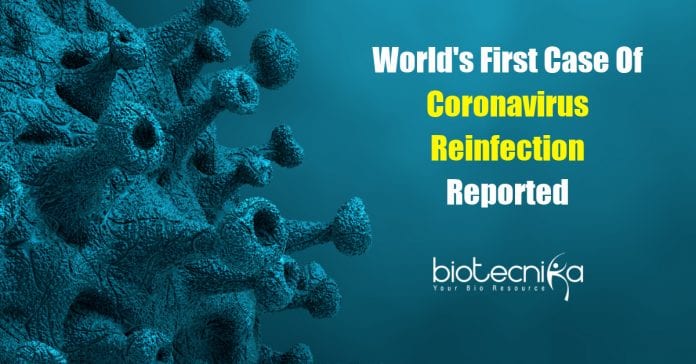First Case Of Coronavirus Reinfection Reported In Hong Kong
A healthy man in his 30s has been reported by the Hong Kong scientists to be reinfected with the novel coronavirus four and half months after his first infection.
Genome sequencing has shown that the virus strains are clearly different, proving it the first-ever case of reinfection of COVID-19 in the world.
But based on the case of one patient, it is not possible to jump to conclusions, warned the World Health Organization. Experts also said that reinfections could be rare and shouldn’t be serious.
By now, more than 23 million people around the globe are infected with the novel coronavirus. Usually, the bodies of infected people fight off the virus and develop an immune response that can protect them from reinfection. The most seriously ill patients were found to have the strongest immune response.
Despite the first case of
coronavirus reinfection, how strong is the immunity or protection, and how long it lasts is still an unanswered question. A larger study will be required on those people recovered from coronavirus infection to find out further, said the World Health Organization.The findings reported by the scientists at the University of Hong Kong, due to be published in Clinical Infectious Diseases, says the man with no symptoms tested positive for the virus a second time during a saliva test in airport screening, four and half months after he spent 14 days in the hospital recovering from the first infection.
Brendan Wren, professor of microbial pathogenesis, at the London School of Hygiene and Tropical Medicine said this is a very rare example of reinfection, and it shouldn’t invalidate the global effort to develop a vaccine for COVID-19. Scientists had already expected that the virus would mutate over time.
Seeing one case of reinfection is not that surprising even if it is a very rare occurrence, given the number of global infections to date, said Dr. Jeffrey Barrett, senior scientific consultant for the Covid-19 genome project at the Wellcome Sanger Institute. The second infection might not be that serious, and they don’t know if the man who was reported with the first case of coronavirus reinfection was infectious during the second episode.






























